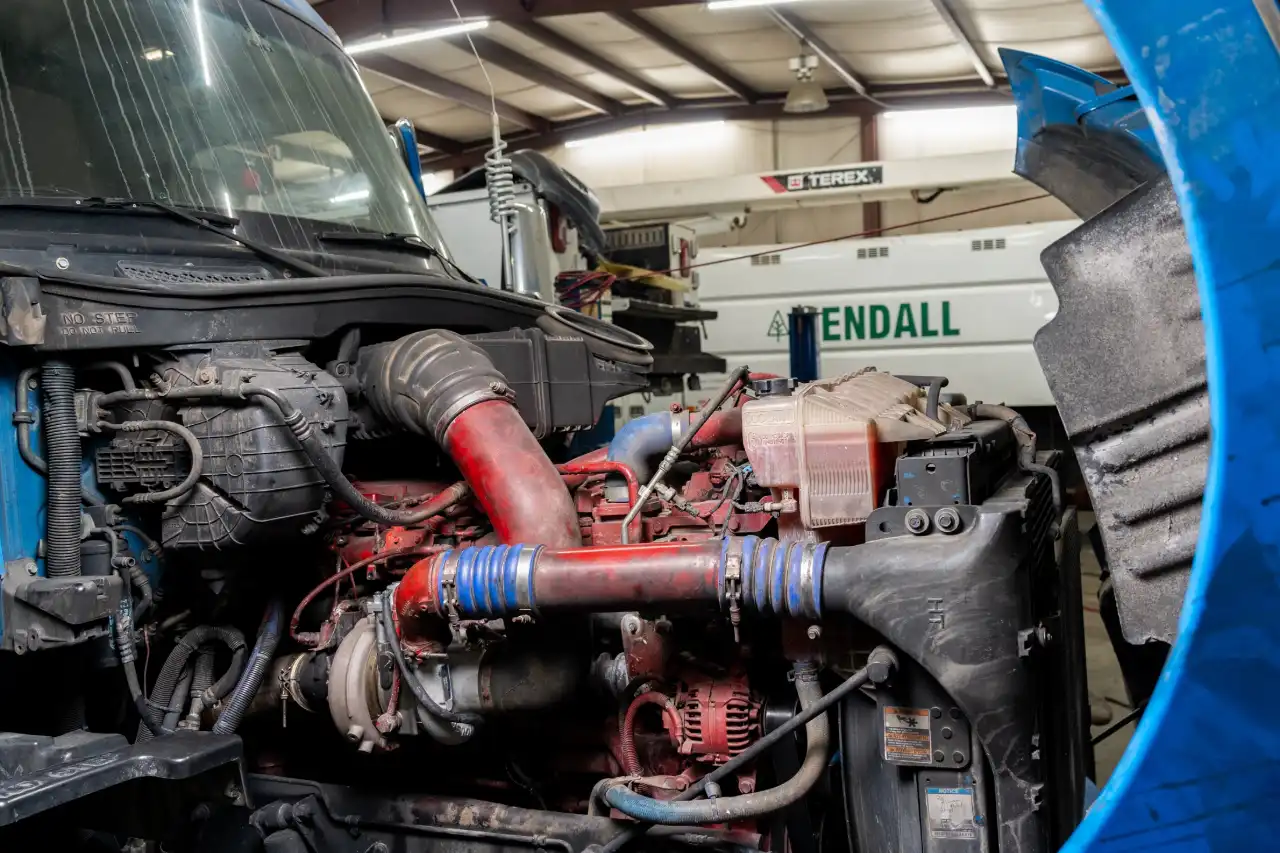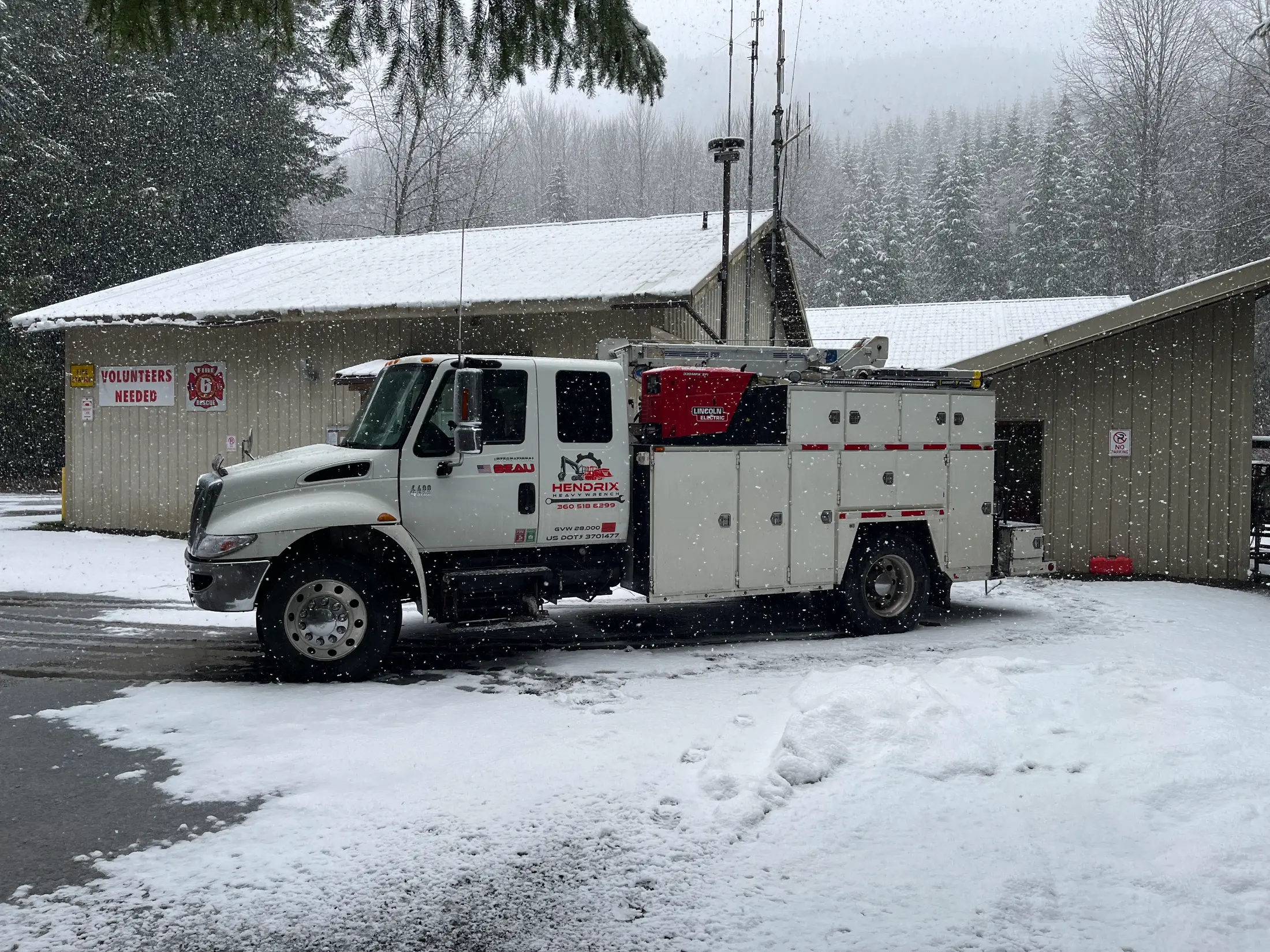How To Prevent Spun Bearing Accidents In Heavy-Duty Truck Engines
Spun bearing failures can lead to catastrophic engine damage, but they’re entirely preventable through routine maintenance, proper lubrication, and early detection. Hendrix Heavy Wrench helps fleet managers keep engines running strong and avoid costly downtime with expert care and inspections.

For fleet managers, keeping trucks on the road is a constant battle against downtime and unexpected repairs. One of the most expensive and disruptive engine issues you can face is a spun bearing—a small problem that can cause massive engine damage if left unchecked. When a bearing fails, the ripple effects can sideline a vehicle for weeks and rack up repair costs. The good news? Spun bearing accidents are entirely preventable with the right approach. By focusing on proactive maintenance and early detection, you can keep your fleet rolling and your bottom line intact. Let’s dive into how to protect your engines and prevent this costly setback.
Understanding Spun Bearings
A spun bearing occurs when the bearing—designed to reduce friction between the crankshaft and its housing—overheats or fails. This can cause the bearing to seize and spin within its housing, leading to excessive wear and potential engine failure. Common culprits include poor lubrication, excessive load, or improper installation.
Key Symptoms of a Spun Bearing:
- Knocking or ticking noises from the engine.
- Loss of oil pressure.
- Visible metal shavings in the oil.
Top Causes of Spun Bearing Accidents
- Inadequate Lubrication: Bearings rely on oil to minimize friction. Low oil levels, contaminated oil, or delayed oil changes can spell disaster.
- Excessive Heat: Overheating can warp the bearing surfaces, leading to increased friction and eventual failure.
- Improper Installation: A poorly installed bearing may lack the clearance needed for oil circulation.
- Excessive Engine Load: Overloading your engine increases pressure on the bearings, pushing them beyond their design limits.
Preventive Measures You Can Take
Frequent oil changes using high-quality, manufacturer-recommended oil are non-negotiable. Contaminants in the oil can scratch the bearing surfaces, leading to faster wear. Check oil levels regularly and use the correct oil viscosity for your engine's needs.
Keep a close eye on engine temperature gauges. Overheating can warp bearings and other critical components. Cooling systems, including radiators and thermostats, should be inspected frequently for optimal performance. Ensure bearings are installed with the proper clearance, torque, and alignment as per the manufacturer’s specifications. A properly seated bearing minimizes the risk of failure.
Signs It’s Time to Inspect Your Bearings
Recognizing early warning signs of bearing trouble is crucial to preventing a minor issue from escalating into a catastrophic engine failure. One of the most common indicators is persistent low oil pressure, which suggests that oil isn’t circulating properly around the bearings. Metallic knocking or tapping noises emanating from the engine’s lower block are another red flag, often caused by the crankshaft striking the compromised bearing surfaces.
If your truck starts consuming more oil than usual without any visible leaks, it may indicate internal wear and tear on components such as bearings. Additionally, finding metal shavings in your oil during routine maintenance is a telltale sign of a failing bearing, as the metal particles are remnants of worn-down surfaces.
Difficulty maintaining consistent engine performance, including irregular vibrations, should also prompt immediate inspection. In severe cases, a seized engine, which halts operation altogether, could indicate an advanced bearing failure. Addressing these symptoms as soon as they arise can save you from extensive downtime and costly repairs, reinforcing the importance of vigilance and timely maintenance.
Checks To Prevent Spun Bearing Accidents
Preventing spun bearing accidents requires routine maintenance, quality parts, and proactive monitoring of engine conditions. Start with a robust lubrication schedule that includes frequent oil changes using the manufacturer-recommended oil grade, as clean oil is the lifeblood of your engine. Ensure your cooling system functions optimally as overheating can distort bearing surfaces and lead to accelerated wear. Some checks to prevent spun bearing accidents include:
- Always use high-quality, OEM bearings during replacements, as inferior parts are more prone to failure under heavy loads.
- Avoid overloading your truck’s engine, which places unnecessary strain on its internal components and shortens the lifespan of critical parts like bearings.
- Make it a habit to inspect engine components for unusual noises, oil leaks, or vibrations that could signal underlying issues.
- Regular checks of your oil for contaminants or metal particles can provide an early warning of bearing wear.
- Invest in professional inspections and maintenance, especially for fleet vehicles, to identify and resolve potential problems before they escalate.
Protect Your Engine from Spun Bearings
Spun bearing accidents in heavy-duty truck engines are preventable with consistent maintenance and attention to detail. By understanding their causes and taking proactive measures, you can safeguard your fleet and minimize costly downtime. When it comes to engine care, an ounce of prevention truly is worth a pound of cure. That’s why Hendrix Heavy Wrench is ready to keep your heavy-duty truck’s engine in peak shape to prevent these catastrophic accidents. Read our article about engine maintenance tips to learn more about your truck’s engine.

